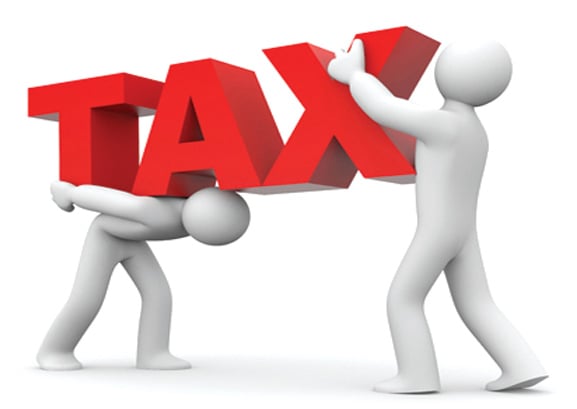TAXATION
Presently, the federal sales tax on goods under the Sales Tax Act, 1990 is being collected by the Federal Board of Revenue (FBR) under the 1973 Constitution. The 18th Amendment introduced many changes in the Constitution, including addition of the phrase ‘sales tax on services’, restricting the right of imposition of tax of the federal government to the extent of ‘the taxes on sales and purchases of goods imported, exported, produced, manufactured or consumed’. The sales tax on services has been devolved upon the provinces. The effect of this change is that the provinces can collect the sales tax on services as a provincial levy. Previously, the sales tax on services was collected through the machinery of the FBR under the various heads of services.
 Under the said Amendment, and in line with the 7th NFC Award, Sindh was the first to establish a provincial collecting board - Sindh Revenue Board (SRB). Sindh has also introduced a provincial enactment under the name of Sindh Sales Tax on Services Act, 2011 for the imposition of the said tax under the various heads of services. All the remaining provinces followed suit and introduced almost similar provincial enactments for levying and charging the sales tax on services. Since the introduction of the provincial sales tax on services, the provincial authorities have been expanding their tax base and raising substantial amount of revenue.
Under the said Amendment, and in line with the 7th NFC Award, Sindh was the first to establish a provincial collecting board - Sindh Revenue Board (SRB). Sindh has also introduced a provincial enactment under the name of Sindh Sales Tax on Services Act, 2011 for the imposition of the said tax under the various heads of services. All the remaining provinces followed suit and introduced almost similar provincial enactments for levying and charging the sales tax on services. Since the introduction of the provincial sales tax on services, the provincial authorities have been expanding their tax base and raising substantial amount of revenue.
The prevailing sales tax system in Pakistan is mainly Value Added Tax (VAT) based, bearing some of the basic features and characteristics of the universally accepted style and norms of VAT. Unlike single point of sales tax, VAT is a multistage levy, applicable at each stage of the chain of supply till the stage of bearing the impact of VAT by the end consumer. VAT is collected on the basis of tax paid on sales, minus tax paid on purchases or more precisely output-input adjustment-based tax system.
Section 3 is the charging section and the registered person is liable to pay sales tax at the rate of 17 percent or any other applicable rate in the course of furtherance of any taxable activity carried on by him. Goods importer is also liable to pay sales tax at the given rate. In the scheme of Sales Tax Act, 1990, imports are subject to tax under section 3(1)(b) and exports are declared zero-rated by Section 4. Section 13 has exempted certain articles or goods that are mentioned in the sixth schedule. In Pakistan, VAT is based on ‘destination principle’ which simply implies that imports are taxed and exports are completely free of tax.
 The claim of excess input tax by the registered person or timely grant of refund by the exchequer is the Achilles’ heel of any VAT system. A VAT invoice constitutes a potential claim on the fiscal resources of the state. The FBR sometimes withheld even the genuine claims of the refund amount in order to inflate the figures of state collection or to meet the revenue target set by the government. The slow release of refund claims may adversely affect businesses. The refund claims of about Rs200 billion were pending with the FBR during the financial year 2016, and only about Rs15 billion were released under public pressure.
The claim of excess input tax by the registered person or timely grant of refund by the exchequer is the Achilles’ heel of any VAT system. A VAT invoice constitutes a potential claim on the fiscal resources of the state. The FBR sometimes withheld even the genuine claims of the refund amount in order to inflate the figures of state collection or to meet the revenue target set by the government. The slow release of refund claims may adversely affect businesses. The refund claims of about Rs200 billion were pending with the FBR during the financial year 2016, and only about Rs15 billion were released under public pressure.
The VAT system is based on the principle of self-assessment, self-policing and self-enforcing type of taxation. And, an audit is a tool through which the tax functionaries can monitor the business activities after having access to the business record and other related documents on annual basis. The purpose is to scrutinise the record and documents in order to detect any tax evasion.
There is a plethora of taxation issues including narrow tax bases, generous tax concessions, special treatment and exemptions, weak and fragmented revenue administration, and defective structural features of the economy, which create hurdles in realising the complete potential of tax revenue.
The success of VAT lies in its complete chain of supply without any disruption or breakage. To achieve this end, there must be very few exempted items and/or the list of exemption must be confined to a very few essential items. In the United Kingdom, VAT is progressive mainly because of zero-rating for food, housing and children’s clothing. However, while zero-rating achieves progressivity, it does erode the tax base.
In Pakistan, a long list of exemptions has been provided in the sixth schedule and a number of zero rating provisions have been incorporated in the fifth schedule of the Sales Tax Act, 1990. This special treatment creates a trust deficit among genuine tax payers who question the rationale of such exemptions and favours.
The discriminatory treatment with various articles, items and industries smacks of fiscal favouritism and cronyism. The federal government regulates this concessional treatment by issuing Statutory Regulatory Orders (SRO) without any formal consistent policy. This state of affairs has been causing uncertainty about tax legislation and adversely affecting consistency in policy.
In Pakistan, the tax effort on the part of tax collectors is also at its lowest ebb, and therefore a big amount of tax revenue remains uncollected. The tax administrators have restricted their role to the extent of collecting taxes which are ‘easy to collect’ administratively, leaving aside a big chunk of taxes uncollected, considering them as ‘hard to collect’ from the potential taxpayers. This approach has virtually excluded a number of articles, items and industries from tax collection without any plausible justification.
Many of the sections of Sales Tax Act, 1990 begin with a non-obstante clause or word like ‘notwithstanding’ that the FBR is not willing to dispense with. This discretionary power of the FBR needs to be modified or qualified with some pre-conditions to give certainty to the tax code.
No doubt, tax reforms have a long gestation period as the same is interplay of various factors influencing its overall results. There is no ‘one-size-fits-all’ (NOSFA) solution.
The main focus of the fiscal expert should be to spend more time, energy, and effort to turn the present ‘less than perfect VAT’ system into a more effective system of taxation in terms of raising the revenue. An equitable tax administration is always a time-consuming process and also high demanding task. The western countries took centuries to reach this present system of tax administration and it can hardly be declared as ‘fiscal nirvana’. The process of improvement cannot take place at a geological pace. Keeping in view the existing tax structure and administrative capacity as Milka Casanegra once put it, “tax administration is tax policy”.
The way a tax system is administered affects its yield, its incidence, and its efficiency. The real tax system is that which is administered, not that which appears in the formal law. Generally speaking, Pakistan needs to embrace progressive changes in tax policy aimed at increasing the buoyancy of the tax system, broadening the tax bases, reducing distortion, and phasing out exemption. Although some of the distortions may be intentional, the real consequence of the distortions is that investment decisions are not guided by tax considerations as opposed to economic considerations.
The writer is an advocate at the Supreme Court of Pakistan